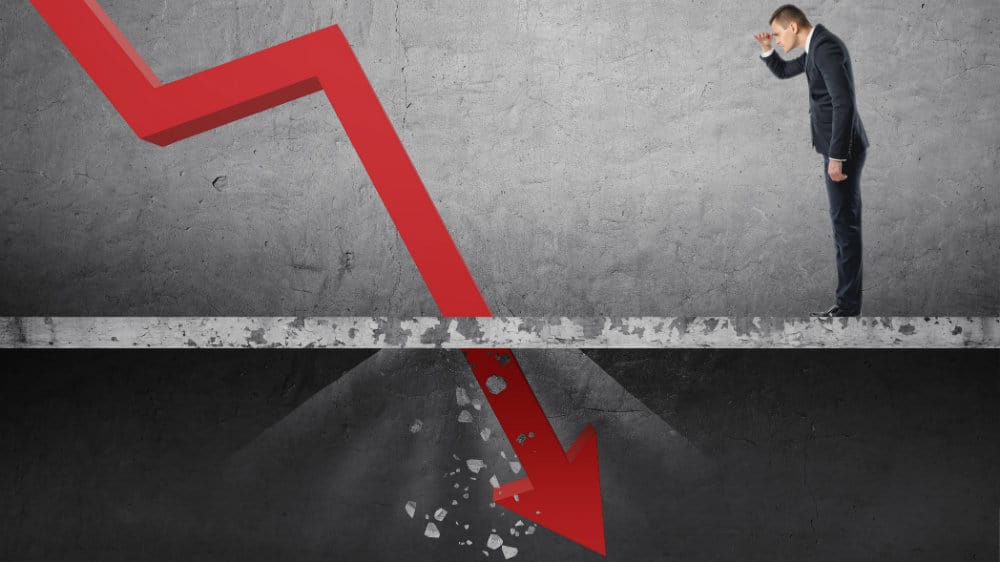The Nasdaq composite index fell 423 points yesterday, closing at 14,546, or down 2.8%, its worst performance since March.
Like many investors, I’ve become increasingly concerned about global factors that could spark a stock market crash. There’s also a possibility that the ‘October Effect’ (the anticipation that stock markets are more likely to crash next month based on historical performance) may have arrived slightly earlier this year. Or this fall could be caused something else entirely. So what’s going on?
Falling consumer confidence
US consumer confidence unexpectedly fell in September for the third month in a row. The Conference Board’s index fell to 109.3, down from 115.2 in August. This indicates that future consumption is going to fall in the US, hampering economic growth. Senior Director Lynn Franco blamed “the spread of the Delta variant [continuing] to dampen optimism.” I think this is an accurate analysis. As the weather changes, coronavirus can spread more easily as people spend more time indoors. And if cases start rising in the US, there could be more financially crippling lockdowns.
But some perspective is important here. On 20 March 2020, the pandemic onset saw the Nasdaq hit a low of 6,978 points. And on 12 May this year, it was at 13,031 points. So while yesterday’s drop is concerning, the index would have to fall much further before coming close to the lows of the past couple of years. And the Nasdaq has recovered after every fall since its inception in 1981. In fact, initial investors in the composite index would be up 7,790% in the past 30 years.
The Nasdaq falls
But it’s not difficult to see why confidence is falling. Last week Federal Reserve Chair Jerome Powell said that “substantial further progress” has been made on the employment front, meaning that it could “easily move ahead” with tapering off its quantitative easing programme. Meanwhile, nine out of the 12 Federal Open Market Committee members are forecasting an interest rate rise in early 2022 to combat rapidly rising inflation.
As the Federal Reserve is currently purchasing $120bn in bonds every month, any future reduction is likely to hit the markets hard. As a result, the 10-year Treasury yield rose to a high of 1.56% yesterday.
And the US’s largest bank, JP Morgan Chase, is drawing up contingency plans for the “potentially catastrophic” possibility that the US might hit its debt limit. Democrats need to raise the government’s $2.8trn borrowing cap before time runs out on 18 October. Otherwise, the US government will default on its loan payments. And a government shutdown could come even sooner, with Treasury Secretary Janet Yellen warning that funding must be approved by Friday. And there’s a good chance that President Biden’s massive infrastructure plan could be cut back in order to get Republican approval.
Tech-heavy Nasdaq
The Nasdaq fell particularly hard as it’s populated predominantly with tech stocks. Many of these aren’t yet profitable, so interest rises make their future cash flows less valuable. This is a problem because tech stocks are often valued on their future potential. And higher rates also weaken their ability to borrow money to grow. Worryingly, even blue-chip stocks like Facebook, Apple and Amazon were hit.
For me, yesterday’s Nasdaq fall might be a sign of trouble to come. But I’m a long-term investor. If there are further drops, I see an opportunity to buy and await the recovery.
Inflation Is Coming: 3 Shares To Try And Hedge Against Rising Prices
Make no mistake… inflation is coming.
Some people are running scared, but there’s one thing we believe we should avoid doing at all costs when inflation hits… and that’s doing nothing.
Money that just sits in the bank can often lose value each and every year. But to savvy savers and investors, where to consider putting their money is the million-dollar question.
That’s why we’ve put together a brand-new special report that uncovers 3 of our top UK and US share ideas to try and best hedge against inflation…
…because no matter what the economy is doing, a savvy investor will want their money working for them, inflation or not!
Best of all, we’re giving this report away completely FREE today!
Simply click here, enter your email address, and we’ll send it to you right away.
John Mackey, CEO of Whole Foods Market, an Amazon subsidiary, is a member of The Motley Fool’s board of directors. Randi Zuckerberg, a former director of market development and spokeswoman for Facebook and sister to its CEO, Mark Zuckerberg, is a member of The Motley Fool’s board of directors. JPMorgan Chase is an advertising partner of The Ascent, a Motley Fool company. Charles Archer owns shares of Amazon. The Motley Fool UK owns shares of and has recommended Amazon, Apple, and Facebook. The Motley Fool UK has recommended the following options: long January 2022 $1,920 calls on Amazon, long March 2023 $120 calls on Apple, short January 2022 $1,940 calls on Amazon, and short March 2023 $130 calls on Apple. Views expressed on the companies mentioned in this article are those of the writer and therefore may differ from the official recommendations we make in our subscription services such as Share Advisor, Hidden Winners and Pro. Here at The Motley Fool we believe that considering a diverse range of insights makes us better investors.
This post was originally published on Motley Fool




